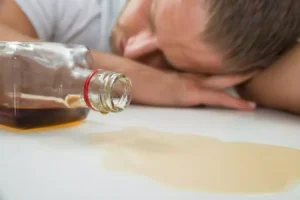
They may know that their alcohol use negatively affects their lives, but it’s often not enough to make them stop drinking. The reward pathway is located in the reward center and is responsible for responding to the body as a result of good or bad behaviors by releasing dopamine and serotonin into the body. When alcohol is present, it stimulates these neurotransmitters, causing feelings of euphoria and affecting the individual’s inhibition. When alcohol is used regularly, more alcohol is necessary to achieve the required effects (the feeling of euphoria).
- Alcohol use disorder includes a level of drinking that’s sometimes called alcoholism.
- This results in tolerance—needing more alcohol to achieve the same effect.
- Glutamate’s ability to communicate is inhibited when alcohol has been consumed.
- They may also be struggling to cope with a mental illness and may use alcohol to self-medicate.
How Long Does Vyvanse Last in Your Body?

Many people turn to alcohol to escape unpleasant feelings and emotions such as stress, anxiety, loneliness, or sadness. If you or someone you know is dealing with an alcohol use disorder (AUD), treatment options are available. Connecting with others who share similar experiences provides encouragement, accountability, and a sense of community. Group therapy and shared experiences create bonds that help individuals remain motivated during and after treatment. This post will explain what makes alcohol addictive, summarize how alcohol addiction happens, and explain what you can do to avoid it.
How Does the Body Become Dependent on Alcohol?
These symptoms, which include anxiety, tremors, and even seizures, can be severe =https://ecosoberhouse.com/ and are often a significant barrier to overcoming alcohol addiction, especially without medical supervision. Long-term alcohol abuse forces the brain to adapt to this increased inhibition. What the brain does in turn is increase the amount of glutamate, an excitatory neurotransmitter.

Short-Term and Long-Term Effects of Alcohol on the Brain

For example, it can increase cortisol, the stress hormone, leading to higher levels of anxiety and depression, which, in turn, may drive more drinking. Additionally, alcohol can interfere with insulin regulation, affecting blood sugar levels, which can lead to fatigue, irritability, and cravings for more alcohol. It also involves several physiological (physical) factors that play a significant role in how a person becomes dependent on alcohol.
Thanks to continual advancements in technology, scientists have discovered that this is not the case as they have found the true culprit of all of the internal chaos that alcohol produces in individuals who are dependent on it. Physical alcohol addiction occurs when the body becomes dependent on it and requires more alcoholic substances to experience its effects. Alcohol tolerance, cravings, and withdrawal symptoms are all signs of physical addiction.

Health Conditions
Drinking addiction can and does occur in people of all ages, from children to the elderly. When you drink alcohol, the body releases “feel good” chemicals like dopamine and endorphins. It then suppresses the normal release of these chemicals, making you crave the substance. Sober living home Whether someone is in the early stages of addiction or has been struggling with alcoholism for years, it’s important to recognize the signs and seek help. Alcohol addiction treatment at Sana at Stowe offers luxury rehab services in a peaceful, healing environment, focusing on both physical detox and emotional recovery.
Mental Health Treatment
- If you are struggling with alcohol use and addiction, see your healthcare provider for an evaluation.
- Malnutrition, cancer, and liver disease are long-term effects of alcohol abuse.
- You may need to seek treatment at an inpatient facility if your addiction to alcohol is severe.
- When someone becomes physically dependent on alcohol, stopping drinking can cause severe withdrawal symptoms.
Lastly, there are many sociological factors that can contribute to alcoholism. We have seen so far that alcohol is addictive due to chemical changes in the brain. However, the other side of the coin is the social aspects of alcohol addiction. Other than the brain telling why is alcohol addictive someone he or she needs alcohol, why does someone drink? Surely each individual drinker has individual reasoning, but the following are some typical social reasons people become addicted to alcohol.